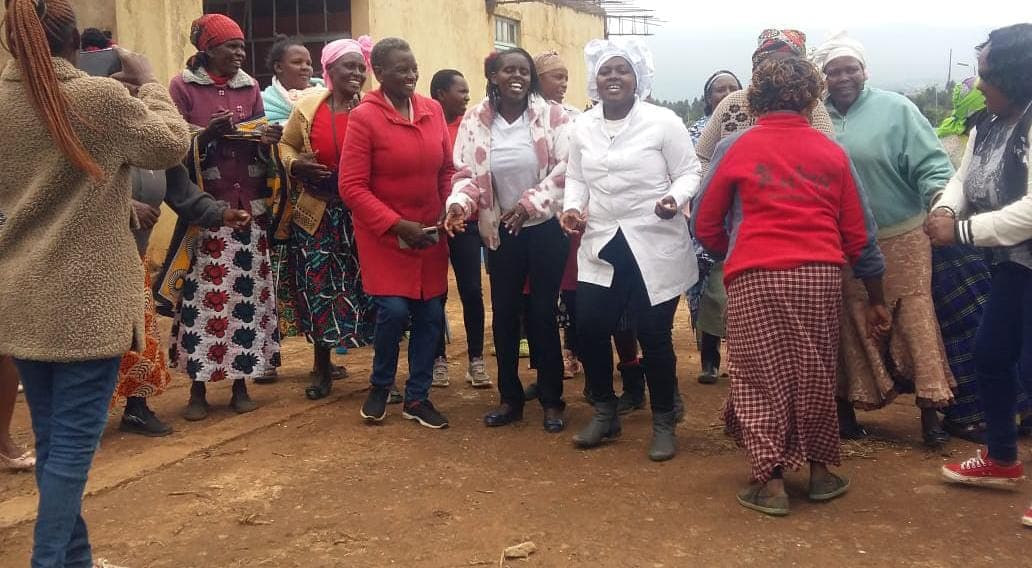We're loading the full news article for you. This includes the article content, images, author information, and related articles.
Despite facing Kenya's highest rates of teenage pregnancy and deep-seated poverty, a new wave of young women in Meru County is leveraging targeted skills training and enterprise funds to forge economic independence and rewrite their futures.

MERU, KENYA – For years, the narrative of young women in parts of Meru County has been dictated by stark statistics. The region records one of Kenya's highest teenage pregnancy rates, with about 24% of girls aged 15–19 becoming mothers, nearly double the national average of 15%. [9] In areas like Igembe South, this challenge is compounded by entrenched poverty and high rates of sexual and gender-based violence (SGBV), creating a cycle of limited opportunities. [9, 22] However, a growing number of young women are actively dismantling this narrative, moving beyond the data to build sustainable livelihoods through a combination of government programmes, non-governmental support, and sheer resilience.
This transformation is being fueled by several recently launched initiatives. In October 2025, the Kenyan government, in partnership with the World Bank, rolled out the National Youth Opportunities Towards Advancement (NYOTA) programme in the county. [5] The five-year project targets vulnerable youth aged 18-29, aiming to provide KSh 50,000 in seed capital to 70 individuals in each ward to foster entrepreneurship and financial inclusion. [5, 13] This national effort complements the County Government of Meru's own Meru Youth Service (MYS) policy, which has already enrolled 3,000 young people in technical and vocational training (TVET) institutions and provided business start-up kits through a partnership with the KCB Foundation. [4]
The impact of such programmes is most visible in the small businesses and agricultural ventures now being led by young women. Non-governmental organisations are playing a critical role in this shift. The "Young Women for Awareness, Agency, Advocacy, and Accountability" (YW4A) initiative, for instance, has established 'Feminist Empowerment Spaces' (FEMspaces) across Meru. [10] These groups provide not only skills but also the confidence for young women to enter traditionally male-dominated fields. Melody Muriuki, an engineering student and FEMspace participant, successfully challenged stereotypes by becoming a welder, crediting the programme with helping her assert her presence in a male-dominated profession. [10]
Similarly, International Peace Initiatives (IPI) Kenya is offering accredited diplomas in Hair and Beauty to vulnerable young women, providing a direct path to stable incomes and an alternative to commercial sex work, a risk faced by many young single mothers without economic opportunities. [11] These stories echo the journey of individuals like Irene Makena, a young mother from Kangeta who, after losing her parents and facing abandonment, transitioned from manual labour at construction sites to running her own salon, showcasing the profound impact of targeted empowerment. [9]
Agriculture, the backbone of Meru's economy, has become a key arena for female empowerment. In the Imenti area, women are at the forefront of a significant agricultural shift from miraa (khat) to banana farming. [8] This transition is creating a new economic pillar for the region, with women leading both cultivation and marketing efforts. [8] Gideon Kimathi, an economic advisor to the county governor, noted in August 2024 that the banana value chain is injecting millions into the local economy and employing numerous rural women and youth. [8]
This trend extends to other agricultural sectors. Women's groups have benefited from initiatives like the Women Agribusiness Promotion Initiative (Wapi), a project by Amiran Kenya and UN Women that provides greenhouse farming technology for high-value horticultural crops. [7] In the dairy sector, women like Edith Mwirigi have risen to leadership positions, becoming a Director at the Meru Dairy Union after demonstrating exceptional performance on her own farm. [15] These ventures not only provide income but also enhance food security and build community resilience.
Despite these significant strides, formidable challenges persist. SGBV and teenage pregnancy remain critical issues requiring urgent intervention. [21, 24] In July 2024, stakeholders at a YWCA workshop in Meru made a powerful call to action for the county government to fully operationalize a safe house for GBV survivors that was established in 2022 but remains non-functional. [18] The County's Director of Gender, Winfred Kagweria, has urged women to leverage government affirmative action funds to build economic independence, which is seen as crucial in reducing vulnerability to GBV. [18]
Furthermore, gender inequality is still evident in political leadership. A gender assessment of the Meru County Assembly revealed that while the constitutional two-thirds gender rule was met, it was largely through nominations, and only one of the 17 house committees (6%) was chaired by a woman. [23] This highlights a persistent gap between representation and substantive power. As young women in Meru continue to break economic barriers, the next frontier remains the dismantling of the social and political structures that limit their potential. The ongoing efforts, however, signal a determined shift from being subjects of grim statistics to authors of their own transformation.
Keep the conversation in one place—threads here stay linked to the story and in the forums.
Sign in to start a discussion
Start a conversation about this story and keep it linked here.
Other hot threads
E-sports and Gaming Community in Kenya
Active 9 months ago
The Role of Technology in Modern Agriculture (AgriTech)
Active 9 months ago
Popular Recreational Activities Across Counties
Active 9 months ago
Investing in Youth Sports Development Programs
Active 9 months ago